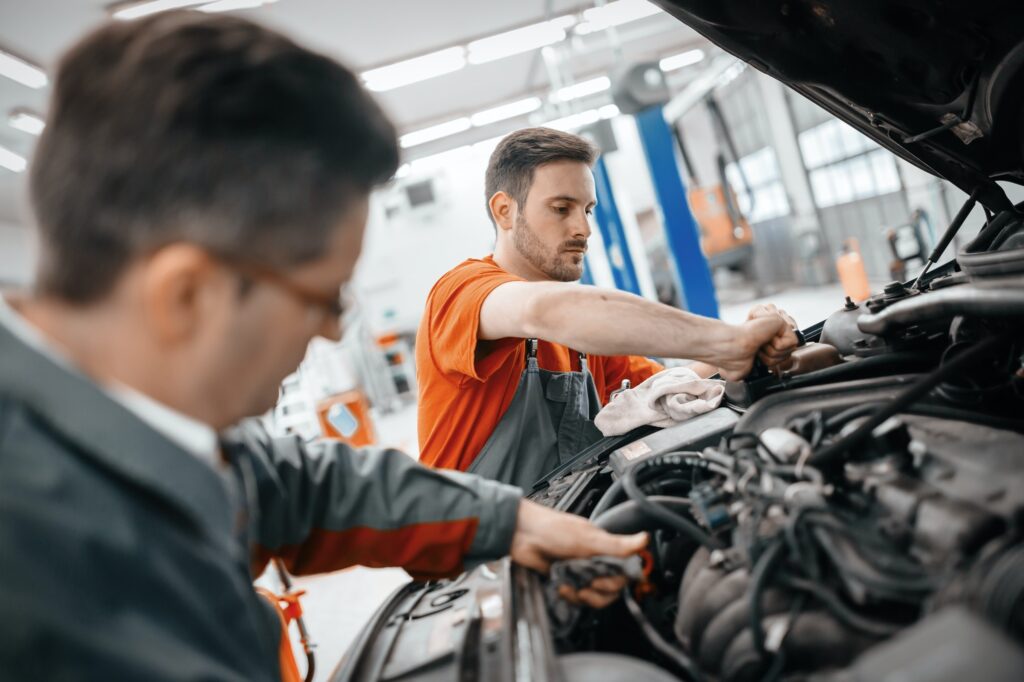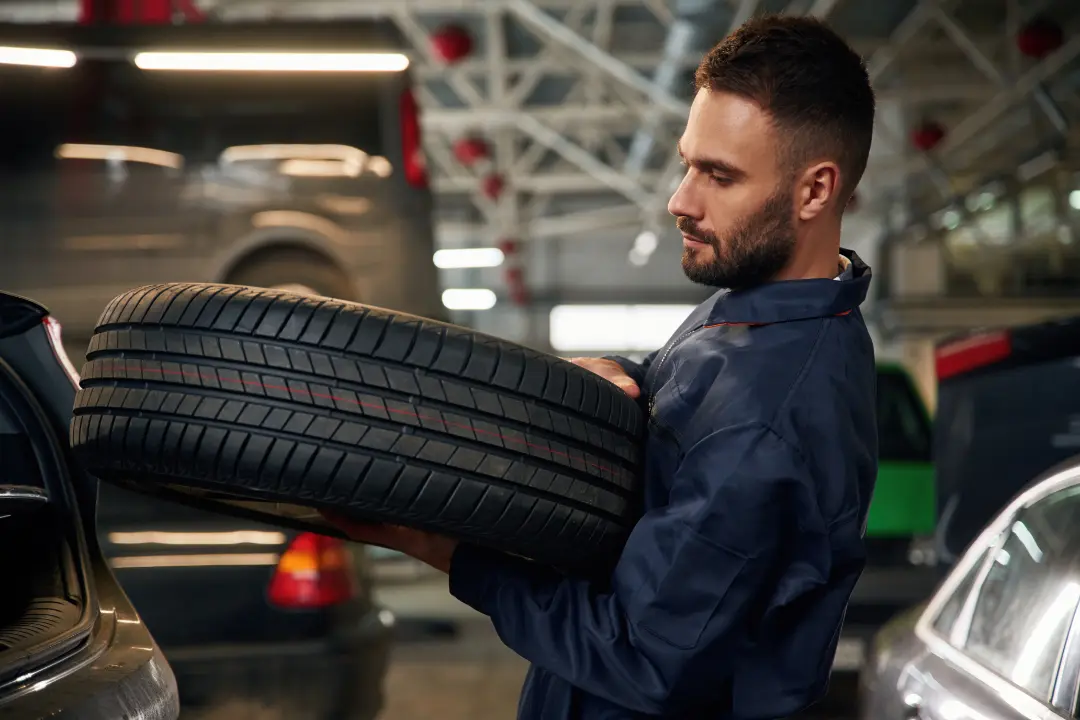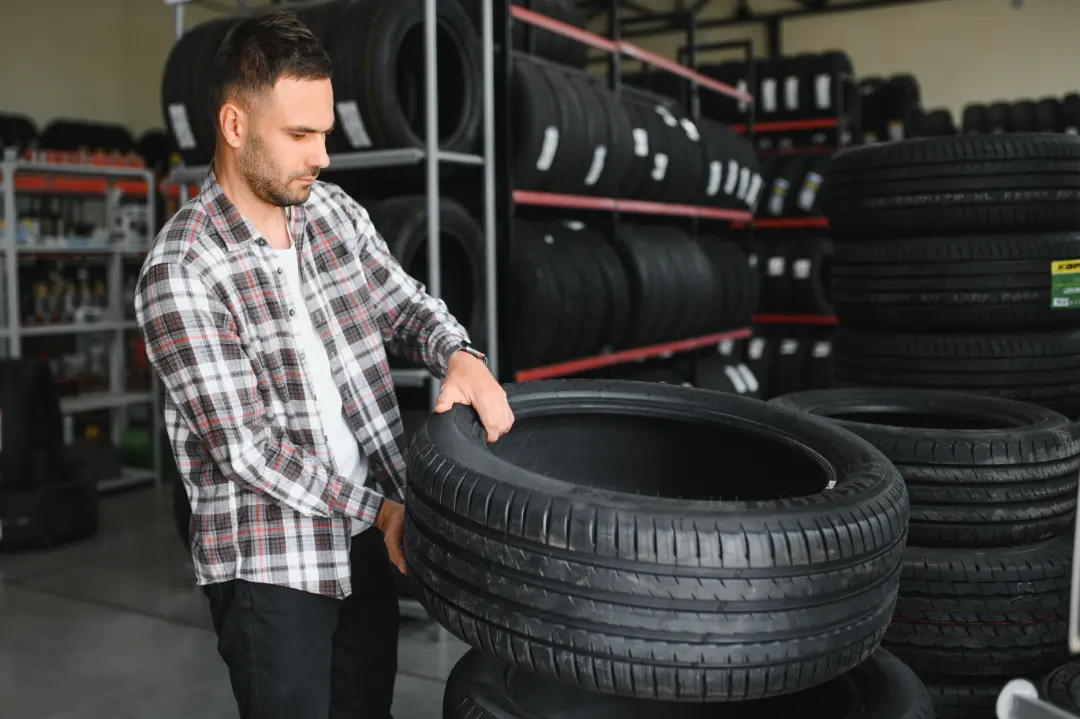Regular car maintenance is essential for keeping your vehicle running smoothly and prolonging its lifespan. In terms of durability, cost and efficiency, it pays off, in the long run, to stay on top of regular car service indicators. Regular maintenance helps you avoid costly repairs down the line, ensures safe personal driving style conditions, and keeps your vehicle running at its peak performance.
But what do you need for a car service? We will help walk you through all the essential components for regular car maintenance so you can be confident in knowing when and how to car service your trusty ride!
Do you need to service your car?
All Vehicle Services is here to help! We specialise in providing a full range of car services for all makes and models. Whether it’s an oil change, tire rotation, or something else, our knowledgeable technicians have the expertise and experience needed to care service your vehicle properly.
You can rest assured that your car will receive quality care and professional attention. We ensure every job meets our high standards of excellence by utilising only quality parts and cutting-edge technologies. Additionally, our commitment to providing fast turnaround times ensures that you won’t have to wait for weeks to get your vehicle back on the road.
Car Service Indicator
In the automotive industry, the term “car service” refers to any maintenance or repair work performed on a vehicle. Brake pad replacement, tire rotation, and oil changes are among the most commonly requested auto maintenance procedures. In addition to these, preventive maintenance procedures may include evaluating the brake fluid levels, changing the spark plugs, or inspecting the condition of belts and other components.
These are the Main Categories of Car Services:
- Car Interim Service: This is a mini-checkup that is required every 6,000 to 12,000 miles or every six months. It typically involves maintaining the components of the car needed for its daily operation. The car service will involve changing the oil and oil filter and inspecting the tires, brakes, spark plugs, and other crucial parts.
- Full Car Service: Compared to an interim car service, full car service is a more comprehensive service that offers a far more thorough check-up. Required yearly, full car servicing includes components of an interim car service, along with extra examinations. Depending on the age and condition of your car, this can include up to 80 checks, including exhaust emissions, coolant levels, and brake fluid levels. A full car service is required every year or every 12000 miles.
- Major Car Service: The major car service depends on your car’s age, make and model, and maintenance routine. A major service is normally performed every 24,000–30,000 miles (or every 2 years). It involves checking, maintaining and replacing components, including the seat belt, radiator, gearbox fluid, air filter and others.
How Much Does Routine Car Maintenance Cost?
When servicing your car, the cost can be an important factor. The cost of routine maintenance depends on the make and model of your vehicle and the types of services you require. However, at All Vehicle Services, we offer affordable rates and a FREE no-obligation quote.
Oil Change
Experts advise changing your oil every 5,000 to 7,500 miles on most newer cars. However, older cars and certain models may require different intervals for this routine maintenance, depending on their usage. You may need to adjust the frequency of oil changes based on how much you drive and how far you travel. It’s important to note that even if you don’t surpass the recommended mileage, it’s still advisable to replace your car’s oil at least once every year to maintain its good condition.
Windshield Wiper Replacement
Driving in the rain and discovering that your car’s windshield wipers aren’t functioning as they should is the worst possible situation. To avoid problems, you should change your wipers every six to twelve months or as soon as you see issues. You can save more if you purchase the blades and install them yourself.
New Battery
The battery in your automobile needs to be replaced roughly every three to five years. Still, the exact time frame will depend on external factors, such as how often your car is driven in extreme heat or cold or left idle.
Brake Pad Replacement
This routine upkeep is a little more difficult in terms of timeframe. Depending on how frequently you use your brakes, you may need to replace your brake pads more frequently. For instance, it can depend on how much of your driving is in the city versus on the interstate. In general, city drivers will need to replace their brake pads more frequently than those who live in rural areas or mostly use freeways.
Rotate or Replace Tires
The legal minimum tyre tread depth in the UK and Europe is 1.6mm across three-quarters of the tyre’s width, and experts recommend replacing tyres with a minimum tread depth of 3mm for safety reasons. Tests conducted by UK technical organisation MIRA revealed that braking distances increase significantly when the tread depth is less than 3mm. In fact, the wet braking distance difference between a tire worn to 3mm and one worn to 1.6mm can be as much as 44%. The cost of tyre replacement depends on the type of car you drive and the tire quality you choose.
What Happens After a Car is Serviced?
After receiving maintenance, your car ought to operate more effectively and efficiently. It’s possible that your mechanic replaced any worn-out parts, examined the diesel engines and other components, changed the oil, topped off power steering fluid levels, and applied lubricants as needed. These procedures enhance the reliability and safety of your car’s operation on the road.
Top 16 Aspects of Car Service and the Benefits they offer
- Air Conditioning: An air conditioning service ensures that your car’s cooling system is in good working order.
- Brakes: Regular brake checks can help to identify any functionality issues and address them before they become a major problem.
- Clutches: A clutch service can help to spot any underlying issues before they lead to failure.
- Engine: Being the heart of your car, regular engine services can help to keep your car running safely and efficiently.
- Exhausts: An exhaust system service can help ensure that your car runs safely and efficiently.
- Steering & Suspension: Regular suspension and steering checks are important for ensuring that your car remains safe to drive.
- Tyre Puncture & Alignment: Tyre health is essential for a safe and comfortable drive. Regular tire checks can help to identify any issues before they become hazardous.
- Fuel System: A fuel economy system service can help ensure your car runs efficiently and safely all year long.
- Car Painting & Detailing: Car detailing and painting services can help to restore your car’s appearance, improve its resale value, and protect it from the elements.
- Battery Replacement: Regular battery replacement can help to ensure that your car starts and runs smoothly whenever you want to ride.
- Gearbox Repair: Gearbox repair and replacement services are necessary for keeping your car running smoothly.
- Cambelt Repairs: A cambelt repair service can help replace worn or faulty parts and ensure that your car runs smoothly.
- Crash Repair: Crash repairs are essential for restoring your car to its original condition after a collision.
- Oil Changes: Regular service oil changes are essential for keeping your car running and reducing the risk of driving with low engine coolant.
- Cooling System Repair: Cooling system repairs can help to prevent engine overheating and extend the life of your car.
- Car Wash: A regular car wash helps to keep your car looking its best and reduces the risk of damage from dirt, debris, and other environmental hazards.
Importance of Full-Service History
A fully stamped service history is essential for car owners. By making sure that car service is done regularly, owners can ensure its reliability and fuel-efficient performance. It’s also a good idea to keep car service records to address any unexpected problems quickly and professionally.
Complete service history also helps car owners identify when to change car filters, like the engine oil filter. For optimal car performance, car owners should get an engine oil filter change every 3 to 6 months. Each time a service is done, the car’s service history should be updated to reflect the car’s service history.
How often do I need to service my car?
Most manufacturers advise servicing your car once a year or every 12,000 miles, whichever comes first. Nevertheless, service plans might vary greatly depending on the age, type and usage of your vehicle. Therefore it’s critical to consult the owner’s manual to learn about the appropriate service intervals.
Here’s some examples of what to expect from a standard full-service:
• Engine oil and filter change
• Fluids check & top-up, wear and tear, wheel alignment, etc.
• Air filter/pollen filter replacement
• Brake system check
• Fuel system check
• Exhaust system check
• Battery condition test
• Shock absorbers & suspension check
• Tyre pressure & tread depth checks
The 5 Benefits of Annual Car Service
- Improved safety: Regular servicing ensures that all of your car’s components are working together safely.
- Smooth running engine: Servicing will take care of certain worn car parts so that your engine runs smoother and more efficiently.
- Reduced fuel consumption: Properly serviced cars use less fuel and produce fewer emissions, which can help you save money on petrol costs.
- Increased lifespan: With regular servicing, you can prolong the lifespan of your vehicle by keeping it in good shape.
- Improved resale value: A regularly maintained vehicle is more desirable when it comes time to resell it or trade it in for a new one.
Frequently Ask Questions About What Do I Need to Service My Car
Q: How much does the car service cost?
A: The cost of a car service depends on the type of extensive service you need, the make and model of your vehicle, and any additional services you may require.
Q: Can I do my car servicing?
A: Yes, some basic maintenance tasks, such as oil changes, tire rotations, and fuel filter replacements, can be done at home if you feel comfortable doing so. For more complex tasks such as brake repairs or engine diagnostics, it is recommended to seek professional help.
Q: Are modern cars cheaper to service?
A: Modern vehicles are often more expensive to car service due to the complexity of their systems and components. They may require specialised tools or diagnostic equipment that could add to the overall cost.
Final Thoughts
Car service is important to keep your vehicle running smoothly and efficiently. By understanding what needs to be done and when to, you can save time and money on costly repairs. Consult your car’s owner’s manual or ask a professional mechanic before undertaking any work on your car serviced.
You can also be sure to get everything needed to keep your car running smoothly. Keep these things in mind the next time your car is due for a car service.



